Health
NYC orders mandatory vaccines for some amid measles outbreak
New York City declared a public health emergency Tuesday over a measles outbreak
Mayor Bill de Blasio announced the unusual order amid what he said was a measles crisis in Brooklyn’s Williamsburg section, where more than 250 people have gotten measles since September. Officials blamed the outbreak on “anti-vaxxers” spreading false information.
The order applies to anyone living, working or going to school in four ZIP codes in the
The city can’t legally physically force someone to get a vaccination, but officials said people who ignore the order could be fined $1,000. The city said it would help everyone covered by the order get the vaccine if they can’t get it quickly through their regular medical provider.
“If people will simply
Officials say 285 measles cases have been confirmed in New York City since the beginning of the outbreak, the largest in the city since 1991.
New York City accounted for about two-thirds of all U.S. measles cases reported last week.
The city’s health commissioner, Dr. Oxiris Barbot, said that the majority of religious leaders in Brooklyn’s large Orthodox communities support vaccination efforts, but that rates have remained low in some areas because of resistance from some groups that believe the inoculations are dangerous.
“This outbreak is being fueled by a small group of anti-vaxxers in these
The commissioner is empowered by law to issue such orders in cases when they might be necessary to protect against a serious public health threat.
Earlier this week, the city ordered religious schools and day care programs serving that community to exclude unvaccinated students or risk being closed down.
Another Jewish religious community, north of the city but with close ties to Brooklyn, has also seen a surge, with at least 166 cases since October. Last week, a state judge blocked an attempt by Rockland County officials to halt the spread of measles by banning unvaccinated children from public places.
The Centers for Disease Control and Prevention recommends that all children get two doses of measles vaccine. It says the vaccine is 97% effective.
The Associated Press
Addictions
City of Toronto asks Trudeau gov’t to decriminalize hard drugs despite policy’s failure in BC
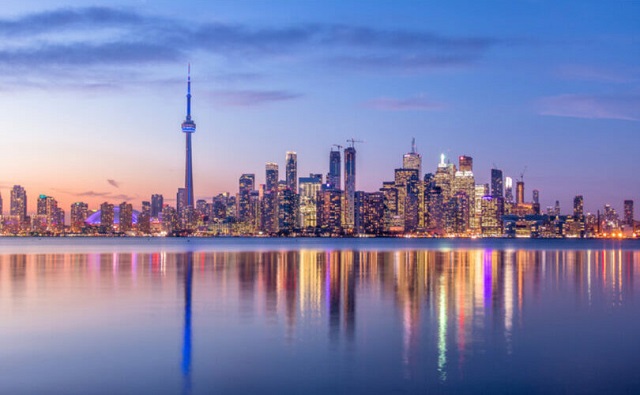
From LifeSiteNews
“Criminalizing the possession of drugs for personal use leads to discrimination and stigma, and contributes to people hiding their drug use from their physicians, friends, family, colleagues, and community”
The City of Toronto is asking Prime Minister Justin Trudeau’s government to decriminalize hard drugs.
In a March letter, Toronto city officials appealed to the Trudeau government to legalize all quantities of crack, cocaine, heroin, meth, and other hard drugs, despite warnings that it will bring increased chaos and violence to the city. Its reasoning is that people look askance at drug abuse and drug abusers, who then attempt to hide their habit.
“The evidence demonstrates that criminalizing the possession of drugs for personal use leads to discrimination and stigma, and contributes to people hiding their drug use from their physicians, friends, family, colleagues, and community,” the document claimed.
The letter, penned by Medical Officer of Health Dr. Eileen de Villa, City Manager Paul Johnson, and Chief of Police Myron Demkiw requested that the Trudeau government decriminalize hard drugs for young people as well as adults. The application places no limit on the quantity of drugs which would be legally obtained.
Toronto is already seeing a rise in crime since the election of Toronto mayor Olivia Chow. Canadians have pointed out that Toronto is dealing with several issues, without adding the decriminalization of hard drugs,
“Trudeau must reject Toronto’s application to allow public use of crack, cocaine, heroin, & other hard drugs,” Conservative Party leader Pierre Poilievre wrote on X, formerly known as Twitter.
“His dangerous policy cannot bring the same chaos, death & destruction to more Canadian cities,” he added.
Trudeau must reject Toronto's application to allow public use of crack, cocaine, heroin, & other hard drugs.
His dangerous policy cannot bring the same chaos, death & destruction to more Canadian cities. pic.twitter.com/hG5h9lsWPq
— Pierre Poilievre (@PierrePoilievre) May 1, 2024
Poilievre’s condemnation was echoed by Ontario Premier Doug Ford who promised, “I will fight this tooth and nail. This is the wrong way to go.”
Poilievre further explained that Canadians have already seen the dystopian effects of the decriminalization of hard drugs in British Columbia, which “has caused chaos in hospitals, playgrounds, parks, and public transport.”
READ: British Columbia should allow addicts to possess even more drugs, federal report suggests
Beginning in early 2023, Trudeau’s federal policy, in effect, decriminalized hard drugs on a trial-run basis in British Columbia.
Under the policy, the federal government began allowing people within the province to possess up to 2.5 grams of hard drugs without criminal penalty, but selling drugs remained a crime.
The province’s drug policy has been widely criticized, especially after it was found that the province broke three different drug-related overdose records in the first month the new law was in effect.
Last week, BC Premier David Eby finally admitted that the province’s ‘safe supply’ program was a failure and called on the Trudeau government to reverse the program. However, Trudeau has yet to respond to the province’s appeal for help.
“Safe supply“ is the term used to refer to government-prescribed drugs that are given to addicts under the assumption that a more controlled batch of narcotics reduces the risk of overdose. Critics of the policy argue that giving addicts drugs only enables their behavior, puts the public at risk, and disincentivizes recovery from addiction. Where “safe supply” has been implemented, it has not reduced the number of overdose deaths. It has sometimes even increased it.
The effects of decriminalizing hard drugs in parts of Canada have been exposed in Aaron Gunn’s recent documentary Canada is Dying, and in the British Telegraph journalist Steven Edginton’s mini-documentary, Canada’s Woke Nightmare: A Warning to the West.
Gunn says he documents the “general societal chaos and explosion of drug use in every major Canadian city.”
“Overdose deaths are up 1,000 percent in the last 10 years,” he said in his film, adding that “[e]very day in Vancouver four people are randomly attacked.”
Even Liberals have begun admitting that Trudeau’s drug program has not helped addicts but only added to their problems.
In April, Liberal MP Dr. Marcus Powlowski testified that violence from drug users has become a problem in Ottawa, especially in areas near the so-called “safe supply” centres which operate within blocks of Parliament Hill.
“A few months ago I was downtown in a bar here in Ottawa, not that I do that very often, but a couple of colleagues I met up with, one was assaulted as he was going to the bar, [and] another one was threatened,” said Powlowski.
“Within a month of that, I was returning down Wellington Street from downtown, the Rideau Centre, and my son who is 15 was coming after me,” he continued. “It was nighttime, and there was someone out in the middle of the street, yelling and screaming, accosting cars.”
RELATED: Liberal MP blasts Trudeau-backed ‘safe supply’ drug programs, linking them to ‘chaos’ in cities
Addictions
British Columbia to re-criminalize hard drug use in public after massive policy failure
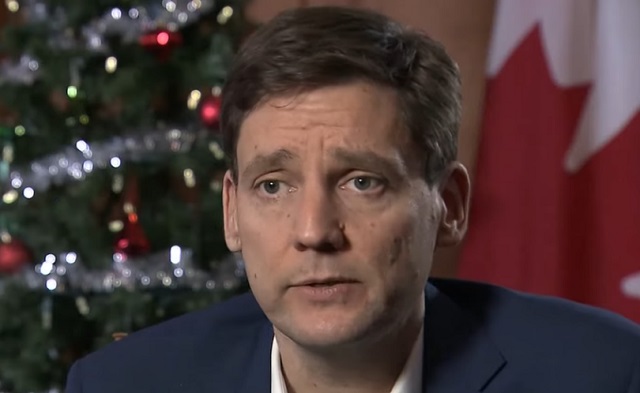
From LifeSiteNews
British Columbia premier David Eby announced that his province plans to re-criminalize hard drug use in public spaces after its decriminalization last year led to widespread social disorder.
British Columbia is asking the Trudeau government to roll back its drug decriminalization program after increased violence and continued overdoses.
On April 26, New Democratic Party (NDP) premier of British Columbia David Eby announced that he is working with Prime Minster Justin Trudeau’s federal government to re-criminalize drug use in public spaces, including inside hospitals, on transit, and in parks. British Columbia, under permission from the Trudeau government, had decriminalized such behavior in 2023.
“Keeping people safe is our highest priority,” Eby explained in a press release. “While we are caring and compassionate for those struggling with addiction, we do not accept street disorder that makes communities feel unsafe.”
“We’re taking action to make sure police have the tools they need to ensure safe and comfortable communities for everyone as we expand treatment options so people can stay alive and get better,” he continued.
Under the new regulations, police would be given the power to prevent drug use in all public places, including hospitals, restaurants, transit, parks and beaches.
However, drug use would remain legal at “a private residence or place where someone is legally sheltering, or at overdose prevention sites and drug checking locations.”
Eby’s concerns over drug use were echoed by Minister of Public Safety and Solicitor General Mike Farnworth who said, “Our communities are facing big challenges. People are dying from deadly street drugs, and we see the issues with public use and disorder on our streets.”
“As we continue to go after the gangs and organized criminals who are making and trafficking toxic drugs, we’re taking action now to make it illegal to use drugs in public spaces, and to expand access to treatment to help people who need it most,” he promised.
Beginning in early 2023, Trudeau’s federal policy, in effect, decriminalized hard drugs on a trial-run basis in British Columbia.
Under the policy, the federal government began allowing people within the province to possess up to 2.5 grams of hard drugs without criminal penalty, but selling drugs remained a crime.
While British Columbia has not yet indicated it plans to re-criminalize possession, its decision to clamp down on public drug use presents a major departure from its previous tactics of continually liberalizing its attitude toward narcotic use.
Since being implemented, the province’s drug policy has been widely criticized, especially after it was found that the province broke three different drug-related overdose records in the first month the new law was in effect.
The effects of decriminalizing hard drugs in various parts of Canada has been exposed in Aaron Gunn’s recent documentary, Canada is Dying, and in U.K. Telegraph journalist Steven Edginton’s mini-documentary, Canada’s Woke Nightmare: A Warning to the West.
Gunn says he documents the “general societal chaos and explosion of drug use in every major Canadian city.”
“Overdose deaths are up 1,000 percent in the last 10 years,” he said in his film, adding that “[e]very day in Vancouver four people are randomly attacked.”
-
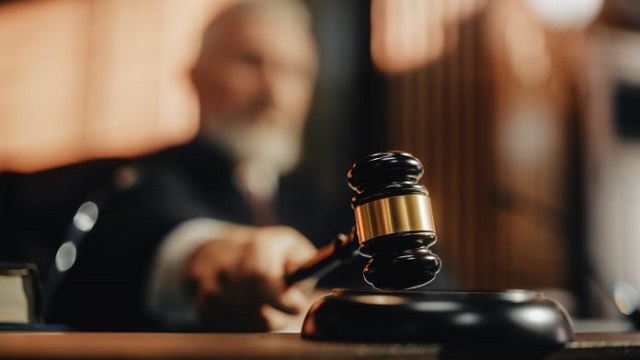
 Opinion2 days ago
Opinion2 days agoClimate Murder? Media Picks Up Novel Legal Theory Suggesting Big Oil Is Homicidal
-
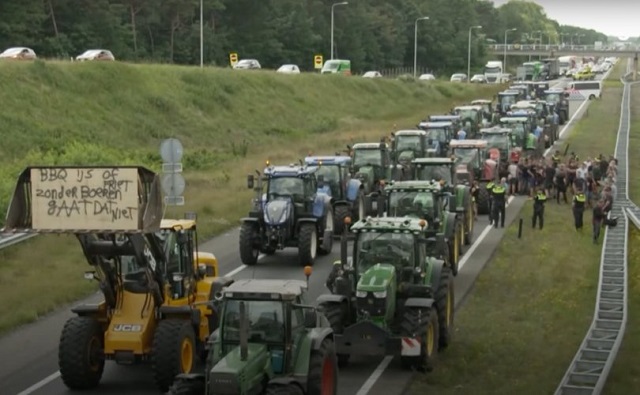
 Energy1 day ago
Energy1 day agoNet Zero’s days are numbered? Why Europeans are souring on the climate agenda
-
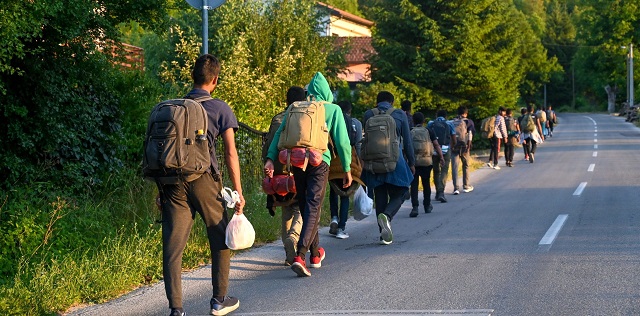
 illegal immigration5 hours ago
illegal immigration5 hours agoBiden’s DOJ Threatens To Sue Another State For Enforcing Immigration Law
-
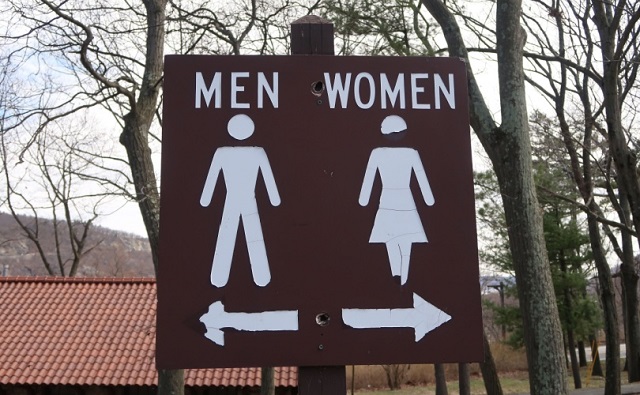
 Opinion1 day ago
Opinion1 day agoQuebec’s ban on gender-neutral bathrooms in schools is good news
-
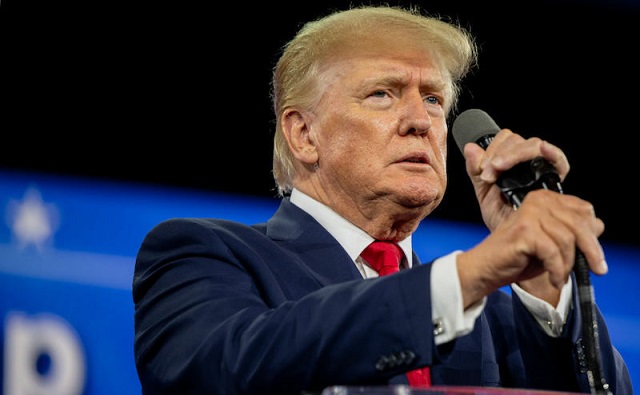
 International15 hours ago
International15 hours agoTrump campaign says he will pardon Jan. 6 prisoners on ‘case-by-case basis’ if re-elected
-

 Energy1 day ago
Energy1 day agoBiden Has Taken More Than 200 Actions Against Domestic Oil, New Report Says
-
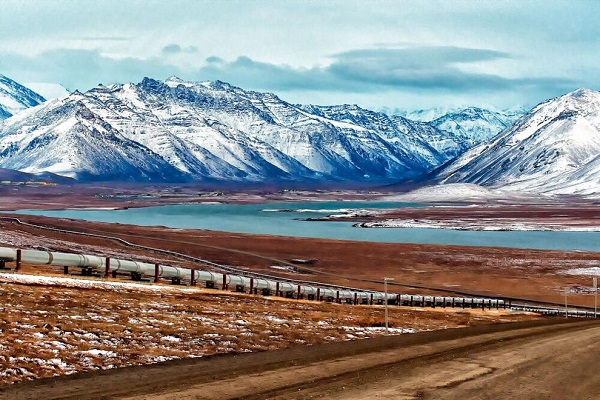
 Energy2 days ago
Energy2 days agoHouses passes bill to protect domestic oil production, protect Iñupiat community
-
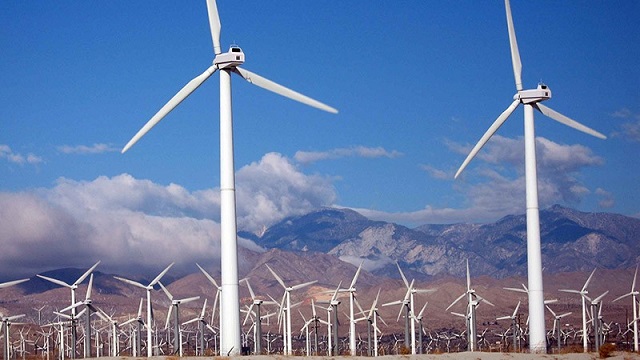
 Economy4 hours ago
Economy4 hours ago‘Gambling With The Grid’: New Data Highlights Achilles’ Heel Of One Of Biden’s Favorite Green Power Sources







